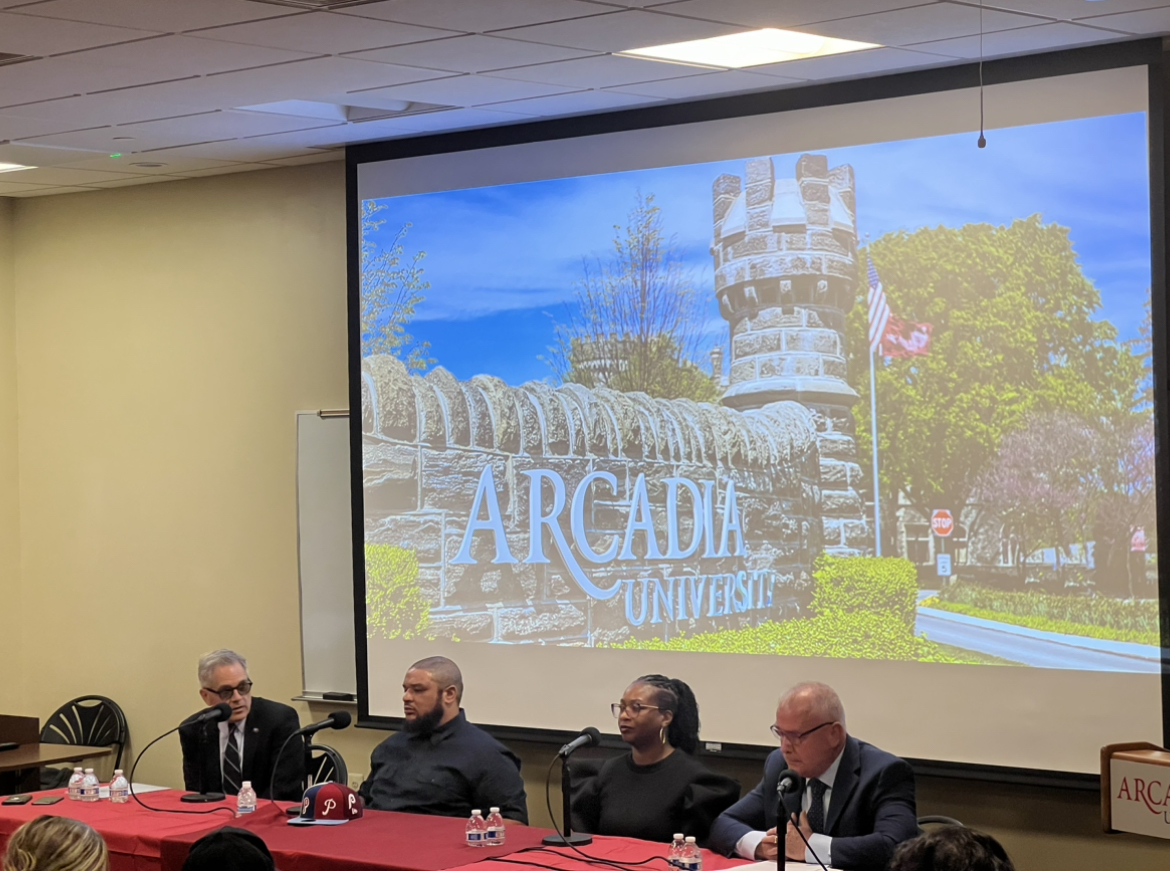Arcadia Hosts Philly DA, Cheltenham Chief for Discussion on Policing and Prosecution

The Center for Teaching, Learning, and Mentoring, in conjunction with student participants in the Living Our Values Experience (L.O.V.E) Program, hosted a discussion panel on policing and prosecution Wednesday featuring Philadelphia District Attorney Larry Krasner, Cheltenham Police Chief John Slavin, Yolonda S. Neal, former Philadelphia Police Department civilian employee, and Sergio Hyland, a public speaker and human rights activist. The panel was live-broadcast on WURD.
This panel discussion, the culmination of students’ work in the LOVE Program’s anti-bias programming that included the development of an on-campus Bias [Un]Installed exhibit about bias in policing, engagement with the Mural Arts Program’s Restorative Justice Women’s Re-Entry Pilot Program, and a visit to the People Advancing Reintegration Recycle Works Program, covered topics such as police training, community policing, the American justice system, mass incarceration, harm reduction vs. punishment, the war on drugs, and more. Co-hosted by sophomore CTLM Student Fellow and Criminal Justice major, Emily Doorbejai and Ahmad Tom Hasani, CTLM Faculty Fellow, Arcadia Alum, and Adjunct Faculty, the panel invited students and community members to hear multiple perspectives that are often not shared in the same room.
“In my opinion, just punishing someone for a crime is not a deterrent, because if it was, we’d be the safest country in the world,” said Hyland, who was incarcerated for over 20 years, vigorously studied politics and criminal justice while in prison, and now advocates for human rights and social justice. “There is punishment and there is accountability, and those two are not interchangeable… Everybody is redeemable, but they need to first understand the impact of what they did. Just putting them in prison doesn’t do that.”
Krasner encouraged students to get involved in their communities when it comes to policing, prosecution, and advocating for change.
“People ask me how they can get involved beyond jury duty, and my response is always to make sure that you vote,” Krasner said. “Voting is important because, in certain places, sheriffs have a lot of power. In other places, the mayor appoints the police chief. So, it’s really important to know the process in your town and to vote.”
Neal said that voting is important, but being active goes beyond that.
“The people hold the power,” said Neal. “You can’t just vote and then forget about it. You have to hold the people you voted for accountable. You have to call, you have to show up, you have to express your opinions.”
Chief Slavin, who has spent nearly four decades in law enforcement, said that training for police officers has changed dramatically over the last several years, and that his goal is to have officers in the department be well-known in the neighborhoods they serve.
“A lot of the engagement events stopped during the COVID-19 pandemic, and we’ve been ramping that back up,” said Slavin. “There are misconceptions about police officers out there in the media. We’re husbands, fathers, wives, godparents, everything else… It’s our job to get out there in the community and let everyone know what we’re doing.”

